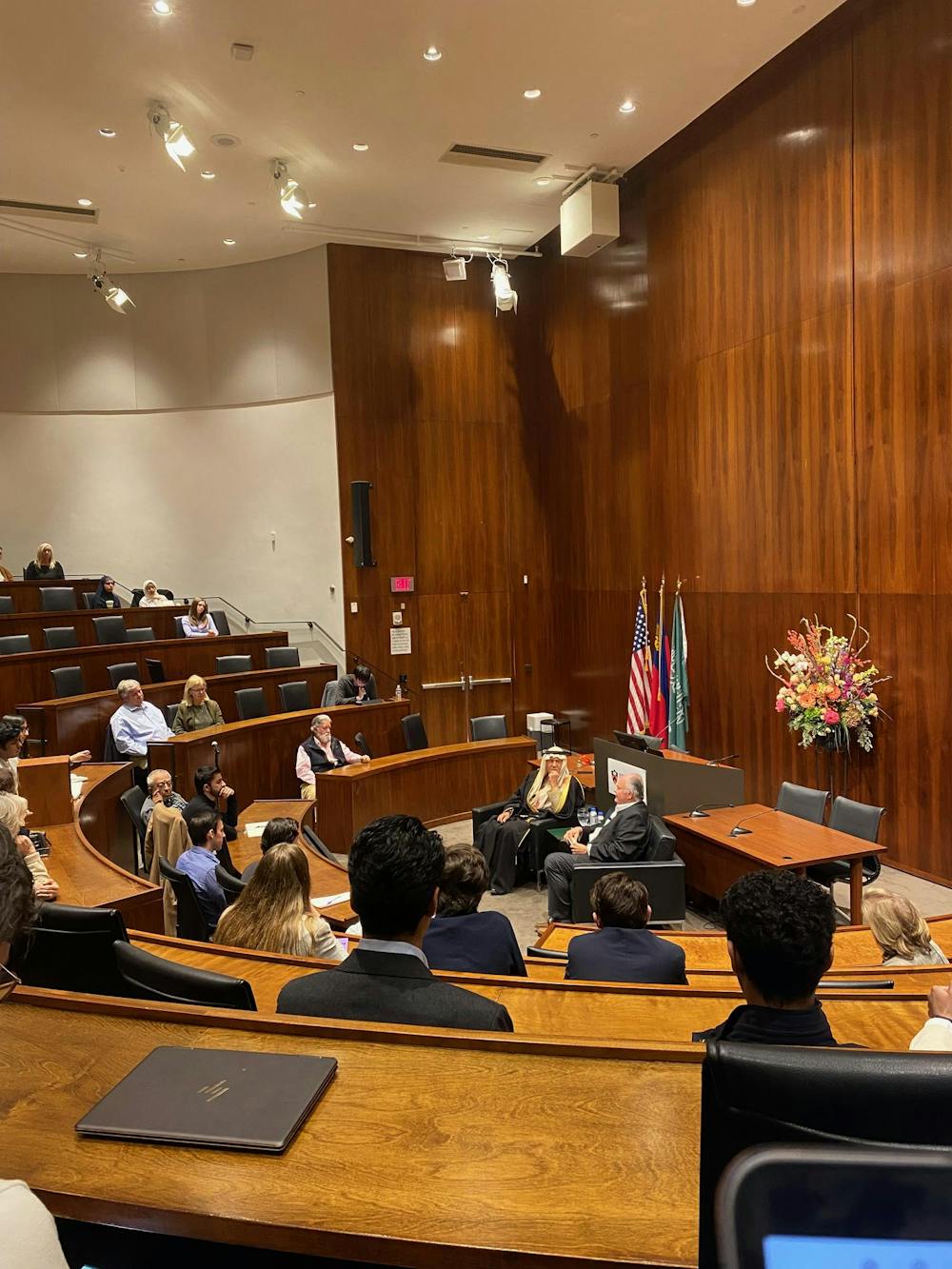Saudi Prince Turki al Faisal al Saud, the former Saudi Arabian ambassador to the United States, spoke about tensions in the Middle East to an audience of about 100 in Robertson Hall 100 on Nov. 9. The event was hosted by the Liechtenstein Institute on Self-Determination (LISD) and co-sponsored by the School of Public and International Affairs (SPIA) and the Program on History and the Practice of Diplomacy.
Faisel originally matriculated into the Princeton Class of 1967 but graduated from Georgetown University.
The discussion, led by LISD Founding Director Wolfgang Danspeckgruber, highlighted al Faisal’s involvement in founding the King Faisal Foundation, a nonprofit that promotes the legacy of his father, and his influence on the global stage.
Al Faisal claimed that the world is in a state of anarchy, which led him to his central idea of “quo vadimus” Latin for “where are we going?” He encouraged strong global leadership, stating, “New cold wars are not the cures to our world’s illnesses.”
Turning his attention towards conflict in the Middle East, al Faisal called into question the actions of the Biden administration during the war in Gaza. “Continued failure to deal with Palestine, the mother of all conflicts, will continue to be a point of contention. The game of Israeli favoritism has not proven to be wise in the case of the U.S.,” he said.
Al Faisal also implicated his home country, saying that Saudi Arabia “will continue to support any issue that brings about a just resolution and a just solution to the plight of the Palestinian community.”
He fielded questions from Danspeckgruber as well as three from the audience. When asked by Danspeckgruber about dealing with powerful individual actors, he stated, “On both sides, you can have leadership, but if it’s not framed by a framework of legitimate commitment to peaceful intent, then it becomes questionable.”
Commenting on the role of women in Middle Eastern business and leadership, he said, “Women, historically, have been abused, misused and literally taken advantage of by men.”

“I don’t mean that facetiously, but I truly believe it,” he continued.
“[It was] education that opened the door for the recent structure of not only tradition, but also social conditions to rectify a misogynistic attitude in society towards women,” he added.
About the Taliban, which currently governs Afghanistan, al Faisal said, “They should not be accorded any diplomatic recognition as long as they implement these draconian measures against their society.” He was referring to their treatment of girls and women, which has been unanimously condemned by the United Nations Security Council.
He also laid out his desired course of action for the Middle East, describing a multi-step process including an “imminent and comprehensive ceasefire” and a United Nations Security Council resolution funding the reconstruction of Gaza, the West Bank, and Israel.

In an interview with the ‘Prince,’ the Prince added that he is hopeful about the recent election of Donald Trump, noting that during his campaign, he promised to stop the wars in Ukraine and Gaza. “If I’m not mistakenly quoting him … hopefully he will act on it,” he said.
Al Faisal, who attended the nearby Lawrenceville School and then Georgetown University, spoke generally about his own college experience during the 1960s at the high point of the Civil Rights Movement. He expressed that student protests were “useful,” as long as they remained nonviolent.
“I am not one who would advocate violence, either for students to promote their ideas or for the university or administration to use violence,” he continued, although he did not reference any specific incidents.
Al Faisal concluded with his idea about the requirements of a modern world leader. “The most important thing is to be open minded,” he said. “I think leadership requires that quality. Any leader should be willing to listen and not simply proclaim what you believe.”
Andrew Arthur is a News contributor for the ‘Prince.’
Please send corrections to corrections[at]dailyprincetonian.com.








